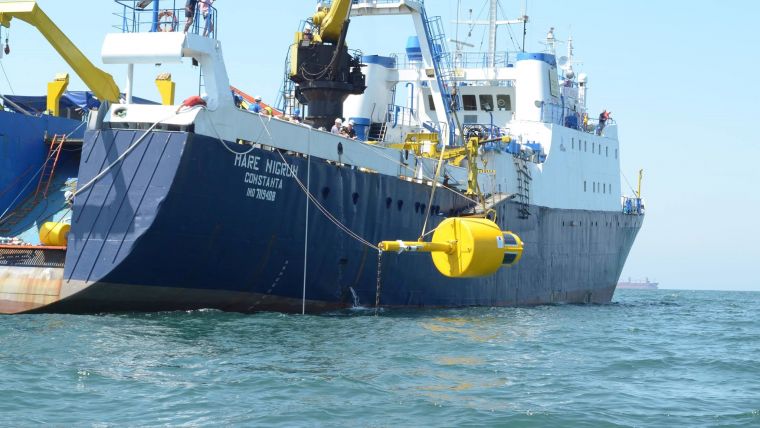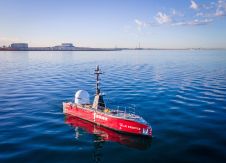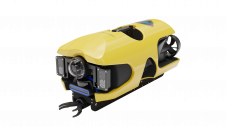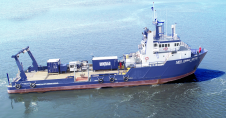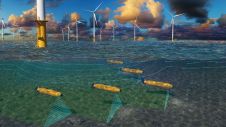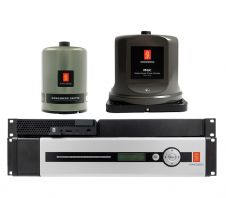Preparing the European Fleet of Research Vessels for the Future
Greater Use of Autonomy Will Influence the Numbers of Personnel Required on Board
Recently, the European Marine Board published a report on the current status of the European fleet of research vessels. This position paper describes how the fleet will need to develop in the future to ensure that it will continue to provide the same high level of support to science and hydrography globally, as well as highlighting ways in which management could be made more efficient. This article is an extract of the report.
Many of the global challenges facing the world today – climate change, food and water security, health and well-being, sea-level rise and economic development – are driving the ever-greater need for science to help understand and ultimately address these challenges. The natural and, in particular, the marine sciences, have a significant role to play, and the research vessel fleet is called upon to deliver data and support globally important scientific research, says Gilles Lericolais, chair of the European Marine Board, in his foreword.
Research Support Platforms
Science has used ships as instruments for research since at least the 1700s, and the evolution of usage from instrument to laboratory can be traced through history. Today’s research vessels have been shaped to become complete research support platforms due to the demand for scientific knowledge, fast-paced technological development, and the increasing need for new ocean observations.
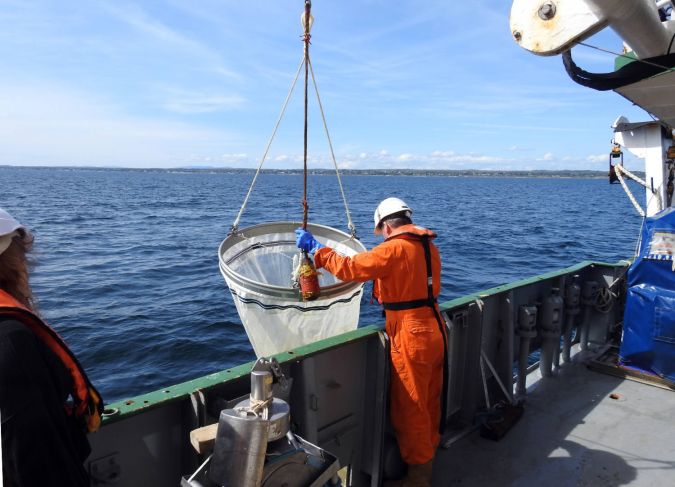
Given the context in which Europe’s research vessel fleet is now operating and the rapid developments in technology seen in recent years, such as smart sensors and autonomy, it was time to review the current status of the fleet and its ability to deliver the data that is needed. It is more than ten years since the first EMB position paper on research vessels was published, and a lot has changed in that time. In particular, new research frontiers have arisen, especially in the deep sea and polar regions, placing a new set of demands on the capabilities of vessels.
Development of the Fleet
The recently published position paper provides a review of the current European research vessel fleet, its capabilities and equipment, and assesses its ability to support science across the globe, now and into the future. It also takes a wider vision, assessing the importance of these vessels in the ocean and Earth observing landscape. This review includes not only technological but also human capabilities, looking at training needs for crew and technicians to ensure they can continue to deliver on critical science needs. Last but not least, the report describes the ways in which the current European fleet is managed.
It formulates recommendations for how the fleet will need to develop in the future to ensure that it continues to provide the same high level of support to science globally, as well as highlighting ways in which management could be made more efficient. It is aimed at national and European-level policymakers and funding bodies, as well as the marine science community and the research vessel operator community.
Scientific Research
The authors describe how the European research vessel fleet plays a vital role in supporting scientific research and development, not just in Europe but across the globe. They explore how the fleet has developed since the publication of the European Marine Board Position Paper 10 (EMB PP 10) European Ocean Research Fleets – Towards a Common Strategy and Enhanced Use (Binot et al., 2007). They look at the current fleet and its equipment and capabilities, the deep sea and polar regions as study areas of ever-increasing importance for science and for the vessels that explore them, the role that research vessels play in the wider ocean-observing landscape, and the importance of training personnel for research vessels, and consider the management of the European research vessel fleet. They also consider what has changed since 2007, what the status is in 2019, and future directions for the European fleet, with a ten-year horizon to 2030.
Ageing Fleet
The current European research vessel fleet is highly capable, and is able to provide excellent support to European marine science and wider scientific research and can lead on the world stage. However, with a typical life expectancy of 30 years for a research vessel, the fleet is ageing and urgently requires further investment and reinvestment to continue to be as efficient and capable as the scientific community expects and requires. The capabilities of the fleet have increased considerably since 2007, and vessels have kept up with fast-paced technological developments.
Contributors to the report expect the demand for complex and highly capable vessels to continue. Research vessel designs and the fleet as a whole will need to keep pace in order to remain fit-for-purpose and to continue to be a key player globally. There is a huge diversity in vessel types and designs in terms of capabilities and equipment, management structures and processes, and training possibilities.
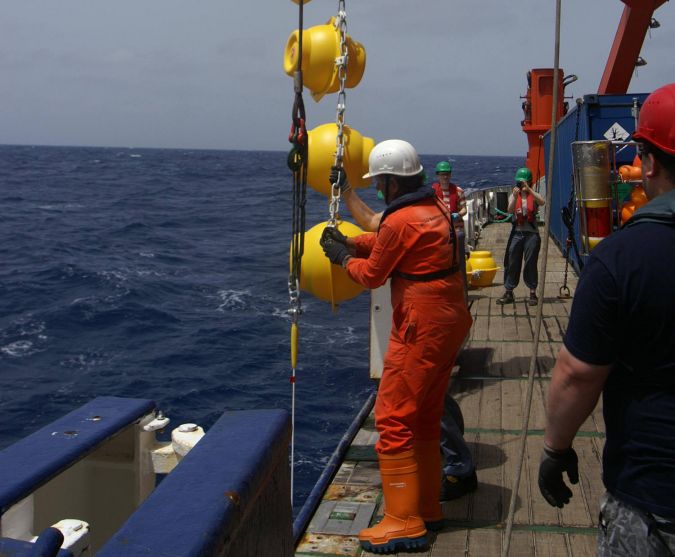
While it would not be possible or appropriate to highlight any single approach as the only one to use, a growing trend in collaboration through community groups, agreements, legal entities and funded projects now enables more strategic thinking in the development of these vital infrastructures. However, some issues remain in enabling equal access to research vessel time for all researchers across Europe, regardless of country and regardless of whether or not that country owns a suitable research vessel for their scientific needs.
Navigating the Future
Marine research and monitoring of the oceans are, and will be for the foreseeable future (i.e. for the ten- year horizon to 2030), based on collecting data and physical samples from the water column, the seabed, the ground below the seabed and the atmosphere above. Beyond that, we cannot yet fully envision what the future will bring. The development pace of new technology for marine data collection and physical sampling is extremely high and we expect to see major innovations in this field in the coming years. One forecast for this can be found in the epilogue of EMB’s latest marine science foresight document, Navigating the Future V (European Marine Board, 2019), which proposes the concept of a virtual ocean based on actual, real-time and historical data.
This would enable people to explore the ocean in a way that they have never been able to before, developing knowledge of how it functions and understanding the implications of management and policy decisions and approaches. Such a vision cannot be realized without research vessels carrying many of the data collection and physical sampling instruments. Research vessels will also for the foreseeable future continue to deploy, service and recover stationary autonomous instruments on the ocean floor, in the water column or on the surface, in addition to deploying and recovering autonomous vehicles that are drifting or being self-propelled on the surface and/or in the water column. Research vessels will, therefore, remain a vital component of the Earth and ocean observation and monitoring system.
Artificial Intelligence
Technological developments in automation and artificial intelligence will undoubtedly change the way in which marine research is conducted in the future, and an ever-increasing focus on a carbon-neutral and sustainable society will require the development of new energy carriers (e.g. batteries and fuel cells) and new types of propulsion systems for vessels of all kinds, including research vessels. This will have a significant impact on the way in which future research vessels are designed and operated in the longer term beyond the 2030 time horizon of this publication. Some innovations may render existing techniques and equipment redundant, and trends towards greater use of autonomy (e.g. using fleets of autonomous vehicles) and digital technology (e.g. livestreaming of science) will most likely influence the numbers of personnel required onboard research vessels.
Push the Boundaries
Other innovations will produce smaller, lighter and more powerful sensors. All of this will affect how future research vessels and indeed fleets look, creating a new balance in vessel sizes, categories and capabilities. The key will be to work together and be ready to adapt to change in order to ensure that the European research vessel fleet remains capable and fit-for-purpose for addressing the scientific and societal challenges to come while continuing to strive for efficiency. Scientific needs and the demands of the scientific community will drive technology advancements, but at the same time, technological developments will also continually push the boundaries of what is possible.
Closer collaboration between research vessel owners and operators will support more efficient operations and increase both the availability and accessibility of ship time. Most importantly, the whole research vessel and marine community will need to engage with the wider society to foster understanding of the importance of Earth and ocean observations, and the role that research vessels play. Without a clear justification for the contribution and growth in funding, and ultimately, without societal support, the research vessel fleet in Europe will not be able to continue to underpin globally-relevant marine research. Without it, the vision of a sustainably-managed and globally-valued ocean will remain just that: a vision, the report concludes.
About the European Marine Board
The European Marine Board provides a pan-European platform for its member organizations to develop common priorities, to advance marine research, and to bridge the gap between science and policy in order to meet future marine science challenges and opportunities. The Board was established in 1995 to facilitate enhanced cooperation between European marine science organizations towards the development of a common vision on the strategic research priorities for marine science in Europe.
Members are major national marine or oceanographic institutes, research funding agencies, or national consortia of universities with a strong marine research focus. There are 33 member organizations from 18 countries. The Board provides the essential components for transferring knowledge for leadership in marine research in Europe. Adopting a strategic role, the European Marine Board serves its member organizations by providing a forum within which marine research policy advice to national agencies and to the European Commission is developed, with the objective of promoting the establishment of the European Research Area.
Highlighted Recommendations
Greater collaboration and ongoing communication are vital for the future of the European research fleet. Some other recommendations are:
- Information and data on the capabilities and equipment of the European research vessel fleet should be kept up to date and continue to be made available through the EurOcean Research Infrastructure Database1 (EurOcean RID).
- For the European research vessel fleet to remain capable and fit-for-purpose, both the fleet and its scientific equipment and instruments should be renewed and developed as a matter of urgency.
- The research vessel community should continue on its path towards greater collaboration in order to aim for equal access to research vessel time, based on excellent science.
- Funding agencies should engage in discussions with the research vessel and marine science communities, as well as other relevant stakeholders to identify key funding needs.
- The research vessel operators community should continue to look forward to the emerging science and technological developments and work together with relevant parties to ensure that the fleet is ready to support these.
Acknowledgement
This article is based on the European Marine Board’s report ‘Next Generation European Research Vessels: Current Status and Foreseeable Evolution, EMB Position Paper 2’.

Value staying current with hydrography?
Stay on the map with our expertly curated newsletters.
We provide educational insights, industry updates, and inspiring stories from the world of hydrography to help you learn, grow, and navigate your field with confidence. Don't miss out - subscribe today and ensure you're always informed, educated, and inspired by the latest in hydrographic technology and research.
Choose your newsletter(s)
